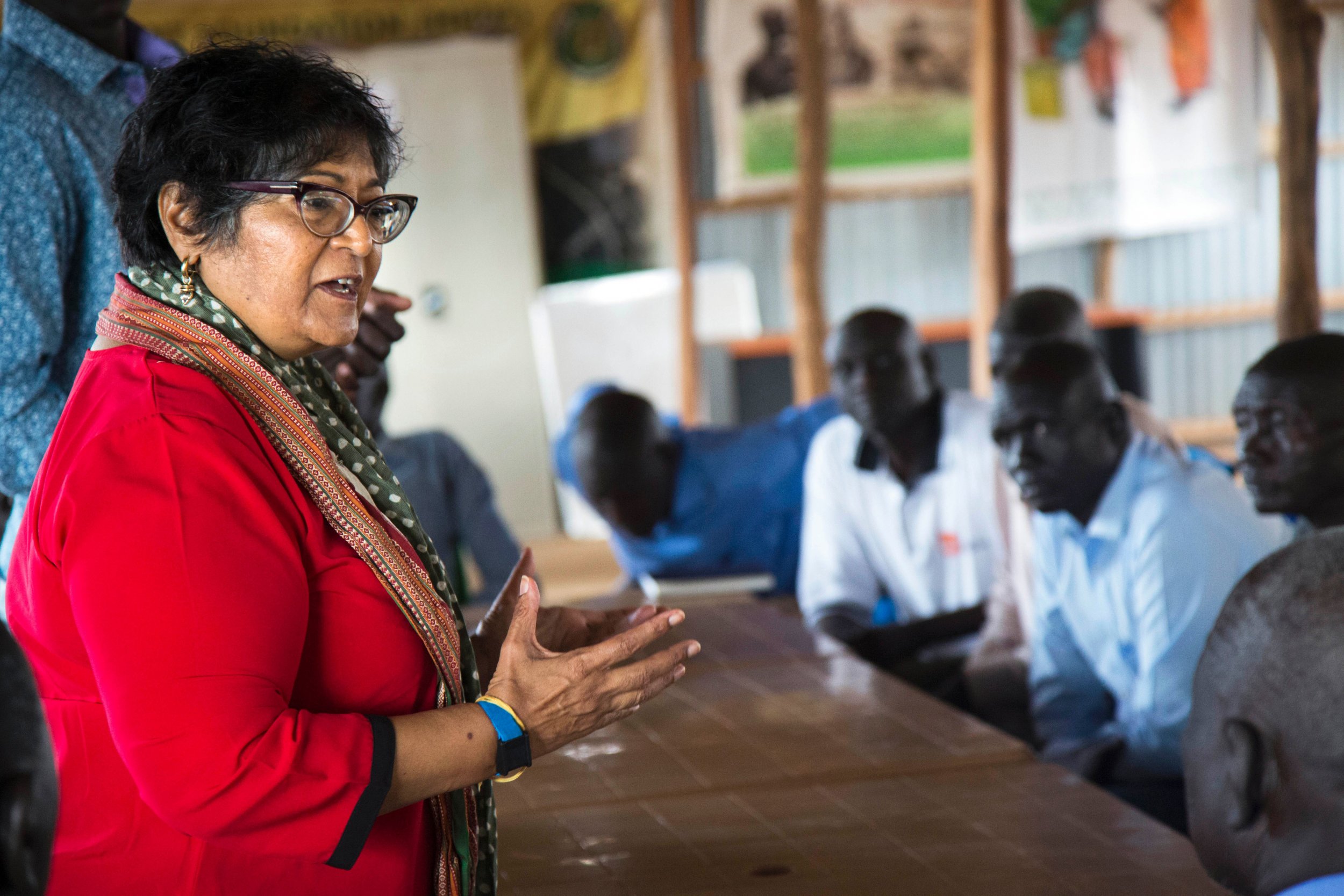
United Nations officials have warned that the conditions are being created for a genocide in South Sudan similar to that which took place in Rwanda in 1994, when some 800,000 people were killed.
A U.N. human rights commission that has traveled around South Sudan for 10 days reported its findings on Wednesday. The commission chair, Yasmin Sooka, said that a "steady process of ethnic cleansing" was already underway in the country, with gang rape, starvation and mass arson being used as means of killing civilians, Al Jazeera reported.
"The stage is being set for a repeat of what happened in Rwanda and the international community is under an obligation to prevent it," Sooka told a press conference on Wednesday.
Over the course of 100 days in 1994, extremist militias from the Hutu ethnic group killed hundreds of thousands of members of the minority Tutsi ethnicity and moderate Hutus in Rwanda.
Civil war broke out in South Sudan in December 2013, when President Salva Kiir accused his then vice-president Riek Machar of plotting a coup. Kiir and Machar represent the country's two main ethnic groups—the Dinka and Nuer respectively—and fighting is increasingly taking on an ethnic dimension.
The U.N. special advisor on the prevention of genocide, Adama Dieng, said in November that there is a "strong risk of violence escalating along ethnic lines, with the potential for genocide." Dieng warned that there had been "extreme polarization" between tribal groups in the country.
The United States has proposed a U.N. Security Council arms embargo in South Sudan following a fresh outbreak of violence in the capital Juba in July, which saw rebel leader Machar—who had returned in April to resume the position of vice-president—flee the capital and later the country. But both Russia and China—who are permanent members of the Security Council and thus hold a veto on any proposals put to a vote—have expressed opposition to such an embargo.
Violence in South Sudan continues to rage and has recently spread to Yei, a major city in the southwest of the country. Human Rights Watch reported in November that both government troops and rebel forces had committed serious human rights abuses, including rebel fighters burning a truckload of civilians to death.
Uncommon Knowledge
Newsweek is committed to challenging conventional wisdom and finding connections in the search for common ground.
Newsweek is committed to challenging conventional wisdom and finding connections in the search for common ground.
About the writer
Conor is a staff writer for Newsweek covering Africa, with a focus on Nigeria, security and conflict.
To read how Newsweek uses AI as a newsroom tool, Click here.








